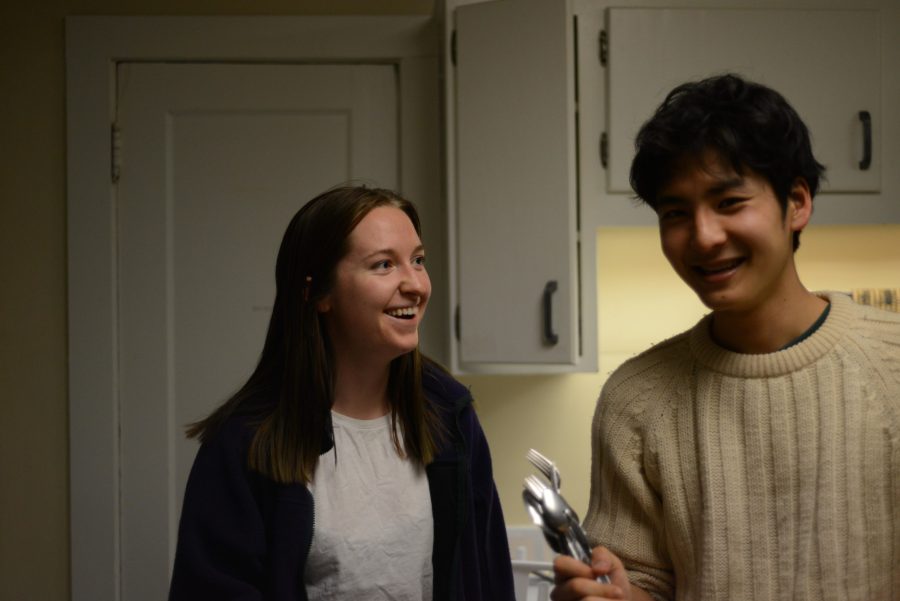This Winter Term, Carleton’s Environmental Advisory Committee (EAC) is hosting a series of conversations to recommend updates to the Climate Action Plan (CAP), which outlines a path for Carleton to achieve carbon neutrality by 2050. Created in May 2011, the CAP is nearly 10 years old and, according to members of the Sustainability Office, needs reviewing and updating. Martha Larson, the co-chair of the EAC and Manager of Campus Energy and Sustainability, said updating the CAP is important because “a lot of the political, economic and social context has changed a lot. There’s increased urgency and determination from the world at large to address the climate crisis.”
Phase I of the process occurred last fall when the EAC met to review and summarize the past 10 years of climate action at Carleton. Phase II will address specific topics such as environmental justice, resilience, carbon offsets and fossil fuel use. The CAP will not directly be updated through these conversations though. Rather, the goal of these meetings is to “write a memo of recommendations on how the [CAP] should be updated,” Larson explained.
The first phase of the CAP review process indicated where Carleton is succeeding in climate action—waste management and energy, for instance—and places where action needs to be reevaluated. During summer 2020, Sustainability Assistants (STAs),Simran Kadam ’23 and Jacyn Schmidt ’21 compiled research about the CAP, focusing on “finding out where there were holes, where there were gaps, what was missing, and creating a series of workshops based on the information that we gained,” Kadam said.
For Kadam, the “absence of climate justice in the original plan was almost shocking,” although both Larson and Kadam agreed that understandings of sustainability and the vernacular have changed over the past ten years.
“It was kind of profound to see not only how much Carleton’s has changed, but how much sustainability has shifted from being just focused on this technical, carbon neutrality aspect to now including a more holistic view that cares about people equally as much as the environment,” Kadam stated.
Environmental Studies major and EAC member Karen Chen ’21 hopes to shift the “narrative and structure of action towards being rethought in a way that centers racial justice, class justice, and goes beyond the sort of conventional focus on operations.”
Schmidt agreed that addressing the climate crisis is important for Carleton because, “as an institution, it’s in our values, it’s in our mission statement to prepare students for challenges in the world and to be able to address things that we’ll be faced with when we graduate, and the climate crisis is one of the biggest issues of our time.”
For Martha Larson, dealing with climate change is an “overwhelming task” because sustainability and climate action “not only apply to operations and managing carbon emissions, but they also apply to the philosophies that we embed in our curriculum, the research that we do, student life and soft education about living in a more sustainable world.”
Kadam and Chen agreed that incorporating a sustainability or a social justice requirement into Carleton’s curriculum would be a step forward in students being “more aware of the issues facing the world in regard to sustainability.”
Beyond the educational component, the EAC and Sustainability Office hope to include more students in the Phase II process. Kadam believes that it is “incredibly important for students to be involved in this process. I feel like students have the right idea when it comes to sustainability because, being the younger generation, we are the ones that are going to be affected by the impacts made today, further down the line. So, if we want to secure a safe future for us and our children, we have to be involved right now.”
Schmidt looks forward to seeing more students at the meeting because she thinks there’s a lot of hope in “imagining the future we want for Carleton and the world.” The first Phase II meeting, focused on environmental justice, took place on Wednesday, January 20 via Zoom. For upcoming meeting links, students can email [email protected]. More information about the CAP review process, meetings and workshops can be found on the Sustainability Office’s website.












